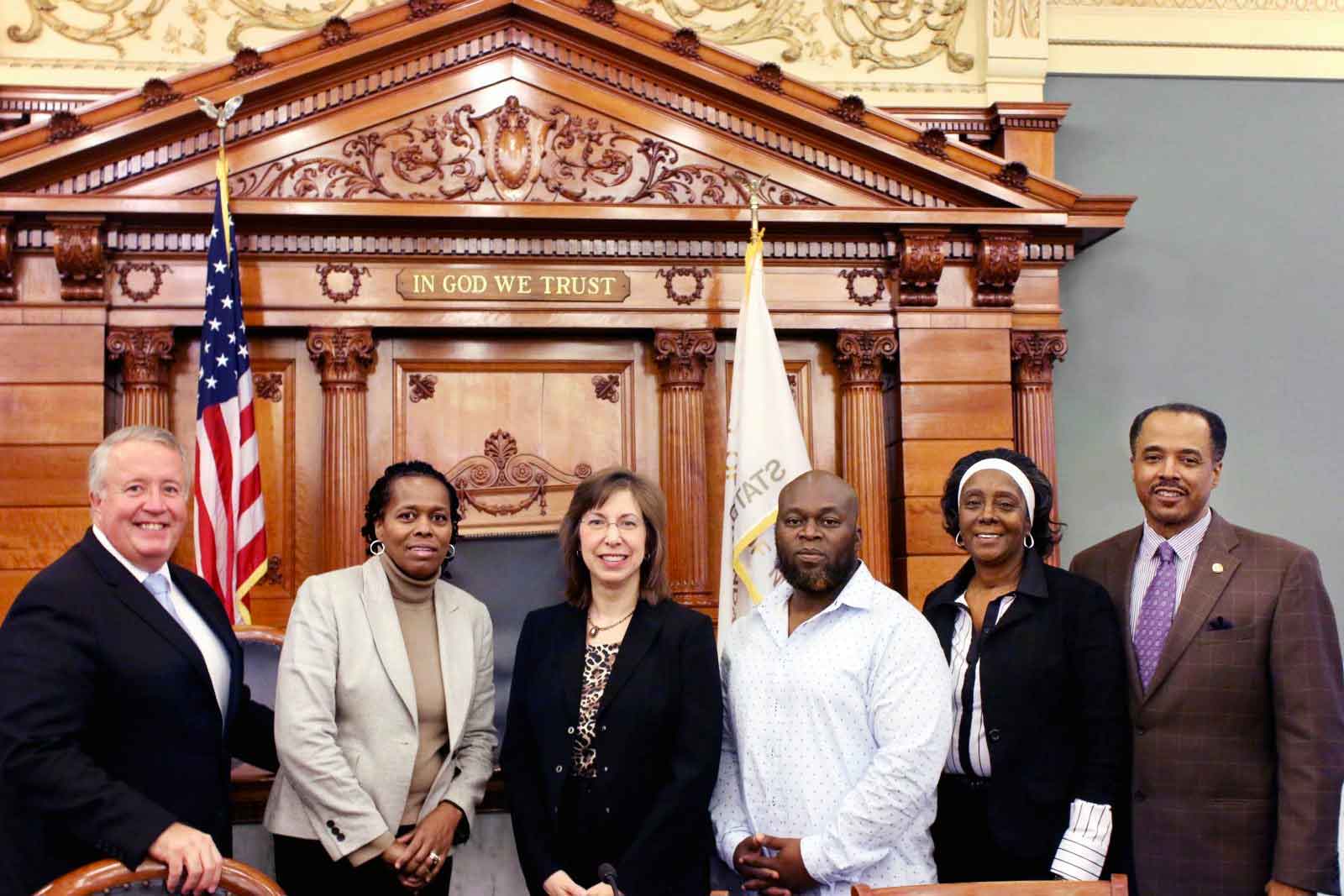
This example comes to mind when Marchese, a social work professor of practice in the University’s Falk College School of Social Work, reflects on the way our heightened reliance on digital platforms during the COVID-19 pandemic has exacerbated challenges for some and created new ones for others. Marchese is a practicing psychotherapist and clinical social worker who also trains other practitioners in trauma processing techniques. She has been helping her clients and fellow practitioners navigate how societal changes in response to COVID-19—including the transfer of so many transactions and interactions to online—affect mental health and mental health work. “The pandemic has created new terrain in so many ways,” she says. “Not only are we facing some new sources of trauma—for example, the experiences of some first responders and others whose lives are at risk because of the nature of their work—but also many new uncertainties and pressures. These new stressors are leading to real increases in depression, anxiety and trauma-related issues.”
New Reality, New Challenges
 Some of the most troubling challenges, Marchese says, are caused by the digital divide—inequalities of access and ability that result in some people having far less connection to the internet than others. “This divide is due to a range of factors, including lack of familiarity or ease with technology, language barriers, living in remote locations where internet infrastructure is limited and, often, poverty,” Marchese says. And, she adds, since the pandemic has plunged many into financial peril, some may no longer be able to maintain the internet service or smart phone that they once could. “Being able to do so much online has been wonderful for many—it’s allowed continuity in work and other vital activities. But for those who can’t access online services reliably, the repercussions are more severe than ever, since alternatives are so few,” she says. Even finding and applying for employment, she points out, is almost impossible without internet access.
Some of the most troubling challenges, Marchese says, are caused by the digital divide—inequalities of access and ability that result in some people having far less connection to the internet than others. “This divide is due to a range of factors, including lack of familiarity or ease with technology, language barriers, living in remote locations where internet infrastructure is limited and, often, poverty,” Marchese says. And, she adds, since the pandemic has plunged many into financial peril, some may no longer be able to maintain the internet service or smart phone that they once could. “Being able to do so much online has been wonderful for many—it’s allowed continuity in work and other vital activities. But for those who can’t access online services reliably, the repercussions are more severe than ever, since alternatives are so few,” she says. Even finding and applying for employment, she points out, is almost impossible without internet access.
The digital divide contributes to social isolation. With physical distancing and the closure of spaces that allowed for in-person interactions, those who lack reliable internet access or find it difficult to use online social platforms may be severely cut off from other people. And isolation can be more insidious too, Marchese says. Even people who have active online lives have been reporting higher rates of anxiety and depression, which, she explains, are seemingly linked to a lack of physical touch.
Caring for the Caregivers
At Syracuse University, Marchese is helping prepare mental health clinicians of the future—a future she believes will include many more options for online services even after the threat of COVID-19 subsides. Marchese says that she, and many of the practitioners she encounters, are reporting positive experiences with online therapy. “Being able to provide mental health care and social work services online is wonderful—we are able to serve clients effectively regardless of geographic distance or other constraints on mobility,” she says. But, she cautions, online therapy poses unique challenges too.
For example, developing a sense of connection and a therapeutic relationship with clients may require more effort and conscientiousness in a virtual format than in person, she says. While some clients may appreciate not sitting in the same room as their therapist, others will feel more exposed because of the face-to-face positioning that’s the norm in online conversation. Also, therapists have to ensure that clients have a private, safe space in which to engage in virtual sessions; for some, this can be difficult to find. “As we move into a world of more online interaction, we have to be mindful of the ways virtual connections are different. We can’t take anything for granted and should never make assumptions,” Marchese says.
During the COVID-19 pandemic, many mental health workers are experiencing the same stressors and strains that their clients are facing. “The advice we give to help others navigate this time is advice we need to apply in our own lives as well,” Marchese says. “That includes getting outside if possible, exercising, setting small goals, remaining socially connected and seeking professional help as needed.” Many people are not feeling their usual selves lately, and that is a normal response to an abnormal situation, she says. It does mean, though, that it’s more important than ever to take care of ourselves and of one another in our communities.
~ Sarah H. Griffin
A Syracuse University story published on August 20, 2020.
